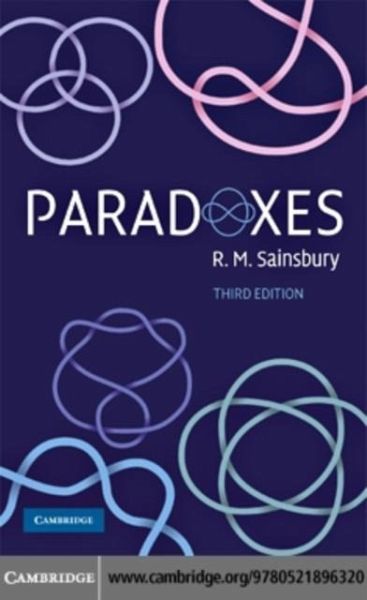Sainsbury Paradoxes Ebook



A paradox can be defined as an unacceptable conclusion derived by apparently acceptable reasoning from apparently acceptable premises. Unlike party puzzles or brain teasers, many paradoxes are serious in that they raise serious philosophical problems, and are associated with crises of thought and revolutionary advances.
To grapple with them is not merely to engage in an intellectual game, but to come to grips with issues of real import. The second, revised edition of this intriguing book expands and updates the text to take account of new work on the subject. It provides a valuable and accessible introduction to a range of paradoxes and their possible solutions, with questions designed to engage the reader with the arguments and full bibliographical references to both classic and current literature on the topic.
When is a reason for doing or believing something a good reason? Over the past century, logicʹs contribution to answering this question has typically involved finding 'logical forms': that is, using a special notation to bring out logical features more clearly.
The correct identification of logical forms has been held to be important not only to logic but also to philosophy. Bertrand Russell coined the phrase 'philosophical logic' to describe an approach to philosophical problems: find the correct logical form of the problematic sentences, and the problems vanish. Logical Forms explains both the theoretical underpinnings of the approach and the detailed problems involved in finding logical forms in the languages of propositional logic, classical first order logic, modal logic, and some alternatives such as free logic, binary and substitutional quantifiers.
Sainsbury Paradoxes Ebook Store
Book cover.